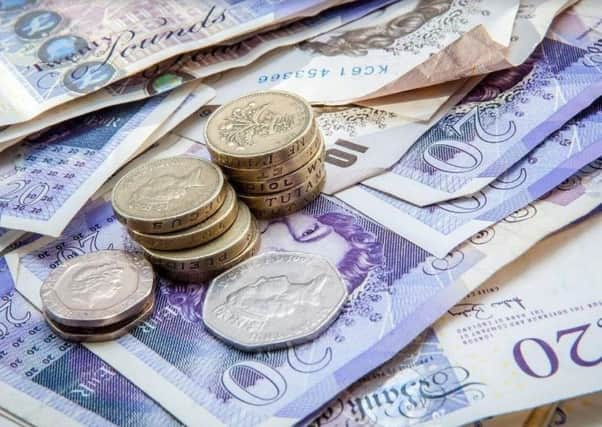UK's household wealth passes £10 trillion as financial assets grow


Research from Lloyds Bank Private Banking shows that the total household wealth nationwide reached an estimated £10.5 trillion in 2016. This is an increase of £892 billion, or nine per cent, from £9.6 trillion in 2015.
The past decade has seen wealth held by households increase by £3.9 trillion, the equivalent of 59 per cent, from £6.6 trillion in 2006. The rise over a decade works out as £143,059 per household since 2006, meaning the value of household wealth has grown faster than the Retail Price Index and gross household disposable income over ten years.
Advertisement
Hide AdAdvertisement
Hide AdThe bank said increasing levels of wealth were positive for households, but that changes like the new freedom to take a pension pot as a lump sum showed the increasing importance of proper financial planning.
But a leading think tank says that despite the increase, the UK remains one of the most starkly-divided in the world when it comes to wealth, with regional inequality helping to fuel the Brexit vote.
The main driver for the increase is the value of financial assets, such as bank and building society deposits, government bonds, shares in companies, life assurance and pensions, which made up 58 per cent of the total.
Sarah Deaves, Private Banking Director at Lloyds Bank, said: “For many people, their overall wealth is locked up in assets that they hold for the longer term like their homes, their pensions, ISAs and investments.
Advertisement
Hide AdAdvertisement
Hide Ad“With rising house and equity prices, net worth has increased substantially in the past decade, growing by £143,000 per household on average.
“Increasing levels of wealth are clearly positive for households, but with recent changes, like pensions freedoms, it also highlights the increasing importance of proper financial planning, especially as people approach and move into retirement.”
Average house prices rose by 4.9 per cent during the year and an additional 183,000 homes were added to the stock of private properties.
This resulted in housing wealth contributing an estimated £431 billion to the overall increase in wealth, accounting for 48 per cent of the total rise.
Advertisement
Hide AdAdvertisement
Hide AdOver half of the £3.9 trillion rise in household wealth since 2006 is accounted for by financial assets, which have grown one-and-a-half times in value from £3.9 trillion to £6.1 trillion.
Luke Raikes, senior research fellow at the IPPR North thinktank, said: “The UK is one of the most starkly divided countries when it comes to wealth.
“It is home to nine out of ten of the poorest regions in the Northern Europe, two of which are here in Yorkshire, as well as the richest area in London.
“It is this regional inequality that in part fuelled the Brexit vote, and we need much more widely shared prosperity to harness the assets of the North as and when we leave the EU.”
Advertisement
Hide AdAdvertisement
Hide AdNick Rucker, partner at Irwin Mitchell Private Wealth, said: “It’s clear that average personal wealth is increasing but this is often locked up in property or in tax-free wrappers such as pensions and ISAs.
“How people can unlock that potential isn’t necessarily all that simple as the tax and regulatory concerns must also be considered.
“Anyone with any level of personal wealth should seek advice on how they can access their assets in the most tax-efficient way.”